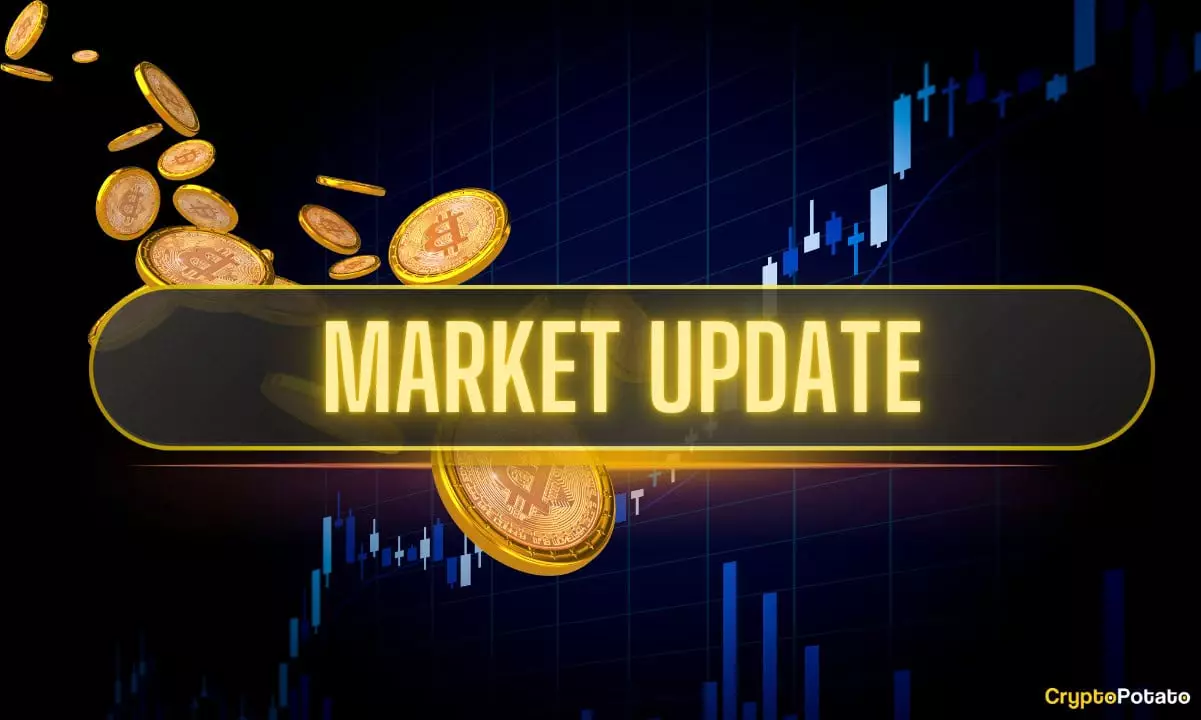Bitcoin, the pioneering cryptocurrency, recently achieved a significant milestone by surpassing its all-time high of $112,000 on May 22, a date now popularly known as “Pizza Day.” This achievement was noteworthy after an arduous four-month period marked by economic instability globally. Investors had high hopes that Bitcoin would maintain its momentum, but reality quickly set in. Within days, Bitcoin experienced a notable retracement, dropping back into the $100,000 range. The ebbs and flows of Bitcoin’s price illustrate not only its volatility but also the broader economic and political forces at play.
Despite the initial excitement around Bitcoin reaching new heights, the cryptocurrency has struggled to sustain its upper hand. Key push factors contributed to this rollercoaster ride, including US President Trump’s recent tariff recommendations directed at the European Union. Although he later postponed these tariffs for more than a month, the damage was already done. Bitcoin faced resistance at every attempt to reclaim the $110,000 mark, ultimately falling below $105,000, marking a sobering 2% weekly decline.
Market Sentiment: More Than Just Numbers
In the realm of cryptocurrencies, market sentiment often sways prices more than fundamental values. The chatter surrounding Bitcoin’s price plunge has sparked a wave of theories among enthusiasts and traders alike. Speculation has arisen that the severe dip in Bitcoin’s value was a calculated strategy to liquidate high-end traders, signaling a shift in market dynamics where larger players are increasingly influencing trends.
The decline seems less painful compared to other cryptocurrencies, notably meme coin Dogecoin, which recorded an 8% drop this past week. In a vast sea of fluctuating values, Bitcoin’s struggle to hold its ground raises questions about market manipulation and investor psychology. It reflects a concerning trend where significant shifts can occur based on sentiment rather than a solid economic foundation.
SEC’s Landmark Decision: Binance Off the Hook?
A significant turning point for the crypto landscape emerged with the recent news that the SEC has officially dropped a lawsuit against Binance, one of the world’s largest cryptocurrency exchanges. As new leadership settles in at the SEC, the dismissal of this case has sent ripples throughout the industry, engendering cautious optimism among crypto investors and regulators. The outcome highlighted a possible shift in regulatory dynamics that may favor the cryptocurrency ecosystem rather than stifle it.
As the SEC reevaluates previous stances under new leadership, the implications for the future of cryptocurrencies could be monumental. This reprieve for Binance might encourage other exchanges that have faced regulatory scrutiny to reevaluate their own situations and, potentially, provide a more welcoming environment for innovation.
Rising Players in Bitcoin Acquisition
Amidst its price fluctuations, Bitcoin has attracted significant attention from various sectors, driving new players to enter the market with acquisitions. GameStop, a company once synonymous with meme stock lore, announced its first purchase of over $500 million in Bitcoin as it diversifies its financial strategy. Additionally, European football club PSG has joined the ranks, quietly amassing BTC as it seeks to leverage the asset’s future potential.
With the participation of established corporations and institutions, the narrative surrounding Bitcoin is evolving. These acquisitions do not just symbolize a financial decision; they represent a cultural shift in how companies and fans perceive cryptocurrencies as integral components of their strategies moving forward.
From Political Stages to Conference Halls
Recent Bitcoin-focused conferences, including the notable gathering in Las Vegas, revealed the growing political embrace of cryptocurrencies. Figures like Vice President JD Vance have publicly articulated their belief that Bitcoin could soon be owned by an unprecedented 100 million people in the United States alone. This assertion underscores the transformative potential of Bitcoin not merely as an asset but as a part of the national financial landscape.
Yet, there exists a level of irony here. Just as Bitcoin aims to decentralize financial power, gaining traction among political elites could introduce new layers of regulation—something many original advocates of Bitcoin staunchly oppose. Legislative backing might further normalize Bitcoin, transforming it from a domain of esoteric enthusiasts to a staple recognized by policymakers and the public alike.
In this unfolding saga, Bitcoin remains a hotbed of innovation, potential, and uncertainty—where speculation and genuine advancements collide. The integration of prominent political figures and established corporations reflects the pervasive nature of cryptocurrency, rendering Bitcoin as much a cultural phenomenon as it is a financial one. As we gear up for the next chapter, the only certainty is that the ride is far from over.















